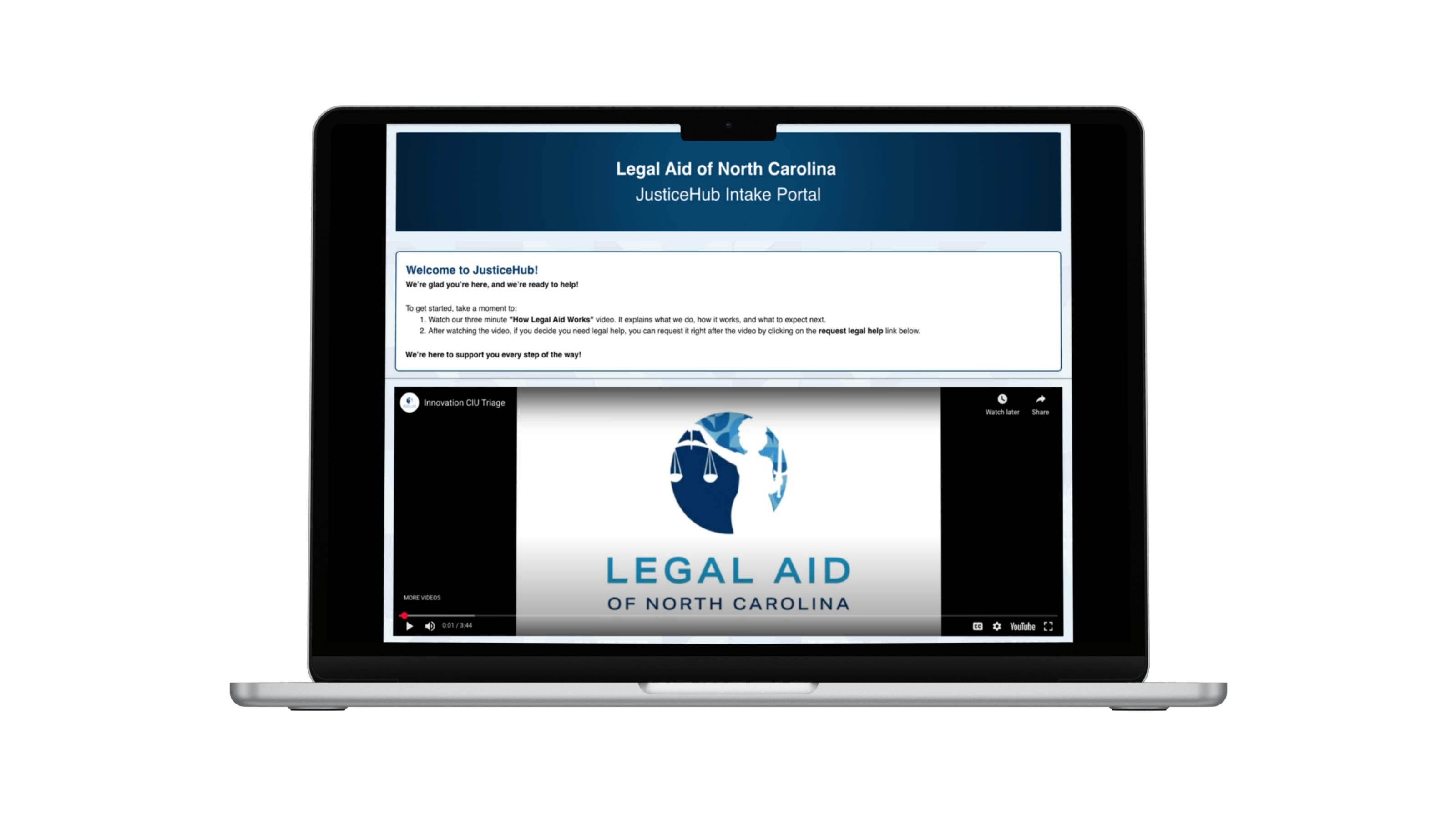Want to Make Your Website Accessible to People with Disabilities? The IRS Has a Tax Benefit For You.
On July 25th 2023, the Biden Administration released a statement addressing the need to improve online accessibility for people with disabilities under the Americans with Disabilities Act (ADA). The Department of Justice (DOJ) is now proposing a new rule to establish accessibility standards for government-funded website and mobile-based services. Doing the work to make your website accessible, however, can be an expensive and time-intensive undertaking. If your legal services organization is looking to ensure that your website and apps meet the accessibility standards under the ADA, you may be eligible to recoup some of your expenses through the tax incentives provided by the Internal Revenue Service (IRS).
We've also put together the most important information you need to know about the tax benefits in a handy flyer.

What is the ADA?
The Americans with Disabilities Act is a federal law that was established in 1990 to prohibit discrimination against people with disabilities. The ADA states that people with disabilities must have the same opportunities as everyone else with respect to accessing employment, participating in government programs, accessing services etc. Today, the ADA also includes digital spaces, including websites and apps. Websites must follow the requirements under the Web Content Accessibility Guidelines (WCAG) to be compliant with the ADA.
What are the Tax Benefits Available for Web Accessibility?
Organizations that incur expenses for digital accessibility remediation work may be able to claim those expenses on their tax returns.
Under Section 44 of the Tax Code, the IRS provides the Disabled Access Credit for small businesses. This tax credit is available to businesses that have total revenues of $1,000,000 or less in the previous tax year OR 30 or fewer full-time employees. This credit can cover 50% of the eligible access expenditures in a year up to $10,250 (maximum credit of $5000). You should fill out Form 8826, Disabled Access Credit to avail of this credit.
For example, your small business spends $6000 on consulting with accessibility specialists, performing an accessibility audit, and remediating accessibility issues on your website. The first $250 is not eligible, so for the remaining $5,750, you can claim 50% as a tax credit. This means that you can claim $2,875 as a tax credit on your return. Your total expenditure for accessibility work after receiving a credit would be $3,215 instead of $6000.
If you do not qualify as a small business, the IRS provides a tax deduction for all businesses under Section 190 of the Tax Code. This tax deduction can be claimed for accessibility expenses with a maximum deduction of $15,000 per year.
Small businesses can even apply for both, the tax credit and the tax deduction, to maximize their tax benefits for accessibility benefits.
What Can You Claim?
You can use the tax benefit to help offset the costs of making your website more accessible to people with disabilities. This can include (but is not limited to):
- Adding Alt-Text
- Formatting page structure and hierarchy
- Fixing inaccessible files and media
- Making your website keyboard accessible
- Ensuring compatibility with assistive technologies

What Are Your Next Steps?
The first step to qualifying for the tax benefits is to consult with accessibility experts who can perform an audit on your website to identify existing gaps in accessibility compliance. They can also provide you with recommendations on how to remediate any accessibility issues. You should also ensure that you maintain documentation of your expenses and invoices during this process as you will be required to provide them when you file for your tax credit or deduction. Once you have implemented the necessary changes and fixes on your website, we advise you to consult with a tax expert to include the necessary documents on your business tax return.
It is important that legal information, tools, and resources on the web are accessible for everyone as it is a crucial step in ensuring that individuals with disabilities also have equal access. Integrating web accessibility checks and requirements to legal services websites, resources, and tools enables people with disabilities to navigate and interact with them without encountering barriers. The IRS tax benefits offer a great incentive for organizations who may not have the financial resources to spend on identifying and fixing accessibility issues on their website. A2J Tech has a dedicated Accessibility Service for legal-services organizations to work on web accessibility. By making websites and digital platforms accessible, your organization can uphold inclusivity, comply with legal requirements, enhance user experience, and fulfill your mission of increasing access to justice to some of our most marginalized community members.*
* The information provided here does not constitute professional tax or legal advice. Please consult with a professional tax expert to help you claim tax benefits.


.png)



